Can SPI and I2C be implemented using digital GPIO pins? I.e. can the SDA and SCK pins of I2C and the MISO, MOSI, SCK, and SS pins of SPI be emulated by setting GPIO pins as input and output accordingly?
For example in the case of an Arduino/Atmega328p, certain pins have been dedicated for SPI and I2C use. Can the other digital GPIO pins perform the same function?1 Is there something fundamentally different in how they behave? Maybe an internal register or something to collect the incoming serial data?
In the diagram, one can see that the SPI pins are shared with digital GPIO pins. Inside the Atmega328p die, are the two distinct elements/submodules with something like a buffer determining which will drive the pin? Or are they the same thing...
1 For the SCK emulation, assume that somehow you are able to pass the clock pulse to a GPIO pin set in output mode.
Note: The Arduino is just an example. I am asking in a general sense.
